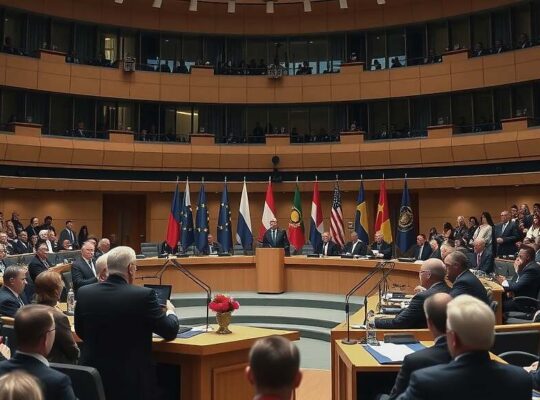A new assessment from the European Commission has flagged a significant cohort of EU member states as being at elevated risk of experiencing heightened migratory pressures. The report, released Tuesday, identifies Germany, alongside Belgium, Bulgaria, Estonia, Ireland, France, Croatia, Latvia, Lithuania, the Netherlands, Poland and Finland, as being particularly vulnerable. This designation stems from a combination of factors, including a high volume of arrivals in the prior year, ongoing strain on existing integration infrastructure and the potential for migration to be exploited for political gain, potentially triggering disproportionate future obligations on these nations.
The identification triggers prioritized access to the EU’s Migration Support Package, along with an accelerated review process should conditions worsen. A further indication of the Commission’s concern is the planned launch of a €250 million tender for drones and anti-drone technology, signaling a shift towards border management focused on technological surveillance and potential deterrence.
Greece and Cyprus are already identified as being under considerable migratory pressure due to a “disproportionate increase” in arrivals last year. Spain and Italy remain significantly affected, primarily due to the large influx of migrants rescued at sea, highlighting the ongoing challenges faced by frontline nations in managing irregular migration flows. These four countries are slated to gain access to the EU’s new Solidarity Pool, commencing mid-2026.
The Commission’s assessment reveals a wider, concerning trend, identifying Bulgaria, Czechia, Estonia, Croatia, Austria and Poland as confronting “significant migration situations” due to accumulated pressures observed over the past five years. These nations have been granted the option to partially or fully deduct their contributions to the Solidarity Pool for the forthcoming year, a measure that critics argue may undermine the collective responsibility pillars of the EU’s migration policy.
The analysis is intended to support the implementation of the broader European Asylum System Reform (GEAS). While proponents argue the reform and the associated solidarity mechanisms offer vital support for overburdened member states, the designation of countries at risk, combined with the proposed drone technology procurement and potential for contribution deductions, raises questions about the long-term effectiveness and fairness of the EU’s approach to migration management.
The next critical step lies with the Council, which must now formally adopt the Commission’s proposal and negotiate the specifics of the Solidarity Mechanism, notably the funding level and the defined contributions of each member state based on their “fair share” a process likely to be fraught with political tension and potential for disagreement. The current assessment underscores the persistent complexities and often divisive nature of migration policy within the European Union.












